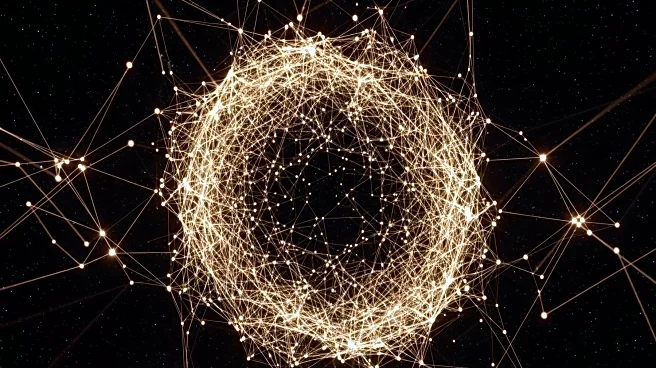What's Happening?
A new theoretical framework proposes that the universe operates as a quantum memory matrix (QMM), where spacetime acts as discrete memory cells capable of storing quantum imprints of every interaction. This concept challenges traditional physics by suggesting that information, rather than matter or energy, is the fundamental element of reality. The theory addresses longstanding puzzles in physics, such as the black hole information paradox, dark matter, and dark energy, by positing that spacetime cells record imprints of matter and forces, preserving information even as black holes evaporate. The framework also suggests that the universe may undergo cyclic phases of expansion and contraction, driven by the saturation of spacetime's informational capacity.
Why It's Important?
The QMM framework could revolutionize our understanding of the universe by integrating quantum mechanics and general relativity, potentially resolving contradictions between the two. It offers explanations for phenomena like dark matter and dark energy, which have eluded scientists for decades. By treating information as the core component of reality, this theory could lead to new insights into the nature of the cosmos and the fundamental forces that govern it. Additionally, the practical application of QMM in quantum computing could enhance error correction and improve the efficiency of quantum systems, impacting technology and scientific research.
What's Next?
The theory is currently being tested on quantum computers, with initial results showing promise for practical applications in quantum computing. Further research and peer review are needed to validate the framework and explore its implications for cosmology and quantum physics. If proven accurate, QMM could lead to a paradigm shift in physics, influencing future studies and technological advancements.
Beyond the Headlines
The concept of a cyclic universe challenges the traditional view of a linear cosmic timeline, suggesting a finite informational age for the cosmos. This perspective could alter philosophical and scientific discussions about the nature of time and existence, prompting a reevaluation of cosmological models.









